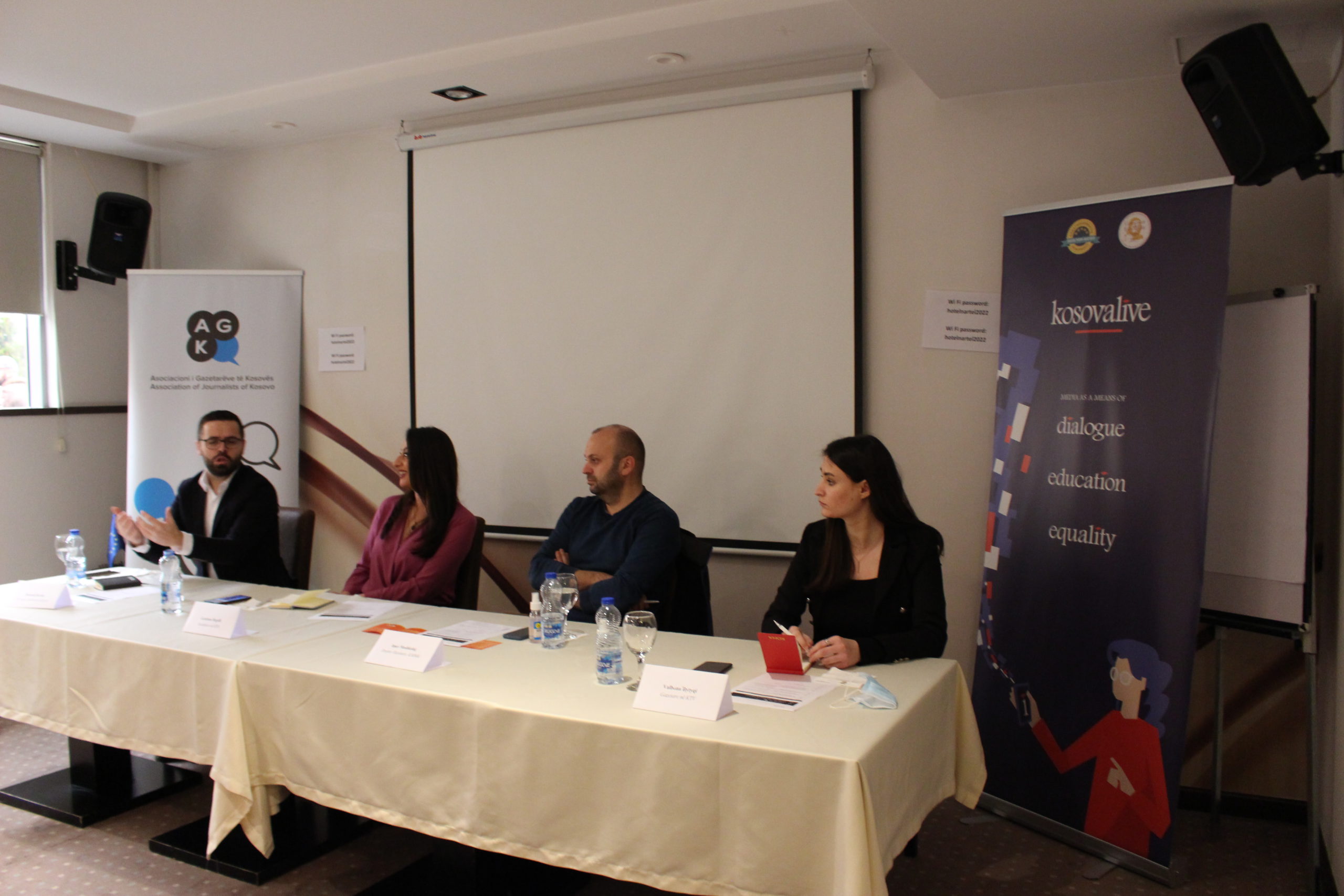A roundtable discussion was held on “The position of journalists in the newsroom, professional ethics and the level of censorship now in the face of technological change.” Part of the panel discussion were: Xhemajl Rexha – Chairman of the Board at JAK, Gentiana Begolli – Editor at RTK, Imer Mushkolaj – Executive Director at the Press Council of Kosovo, and Valbona Bytyqi – Journalist at KTV.
During this panel was discussed the position of journalists with technological developments in recent years, the large number of media today, as well as the large volume of information posted, news that (s) comply with ethical rules and how we stand In this aspect.
The discussion started with Xhemajl Rexha, where they discussed self-censorship in the media and how editors and editors-in-chief are responsible for what is published in their media, how young interns and journalists are treated in the newsroom and the lack of care and mentoring towards them. He indicated that journalists are being planned to receive free legal aid.
Gentiana Begolli spoke more about the position of journalists today, the problems they face starting from low wages, long working hours, gender discrimination, wage discrimination and the large increase in the number of media, the conditions of the work of journalists is not improving.
Imer Mushkolaj, spoke more about the code of ethics in journalism, according to him “we as a society, as a community of journalists do not suffer from the lack of codes but from non-compliance with these codes.” The code is something simple with the basic principles of the journalist’s work, but unfortunately in our media the things that are published do not even meet the basic rules. He also talked about the lack of media education and how difficult it is today for people to know what content to read online every day, what is ethical, or to switch to three or four different media only to get the right information.
The conversation continued with Valbona Bytyqi who spoke about her experiences as a journalist and how censorship by the media itself affects the work of a journalist.
The recommendations made from this roundtable are:
- The University to provide internships for students of journalism;
- Editorial offices to provide close mentoring to their interns;
- The media should always publish the name of the author / s of the publication;
- It is recommended to respect the rights of journalists according to the Labor Law, to report problems to the labor inspectorate in case of violation of this law by the employer;
- The media should create internal guidelines that will be provided to staff as soon as they start working there, in order to ensure that editorial policies and ethics are respected;
- Editors-in-chief and editors should be responsible for the publications that appear in their media;
- For mistakes that may occur at work journalists should be educated not to repeat mistakes and not to be fired automatically;
- Provide Media Education for the citizens of Kosovo;
- Have regulation and self-regulation within online media;
- Establish a union to protect the rights of journalists.
The project “Strengthening Independent Media and Promoting the Security of Journalists in Kosovo” is funded by the Ministry of Foreign Affairs, Commonwealth and Development of the United Kingdom through the British Embassy in Pristina and Albany Associates.








